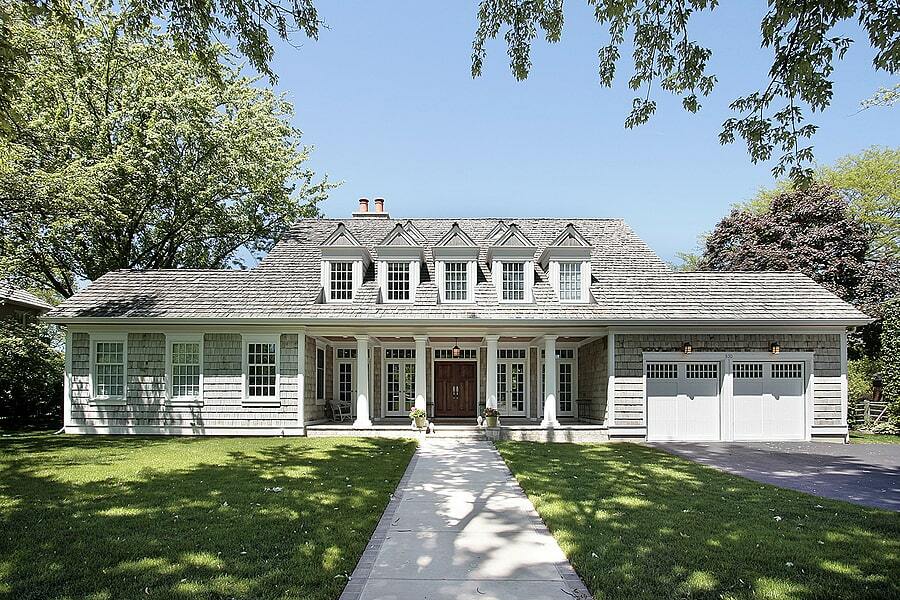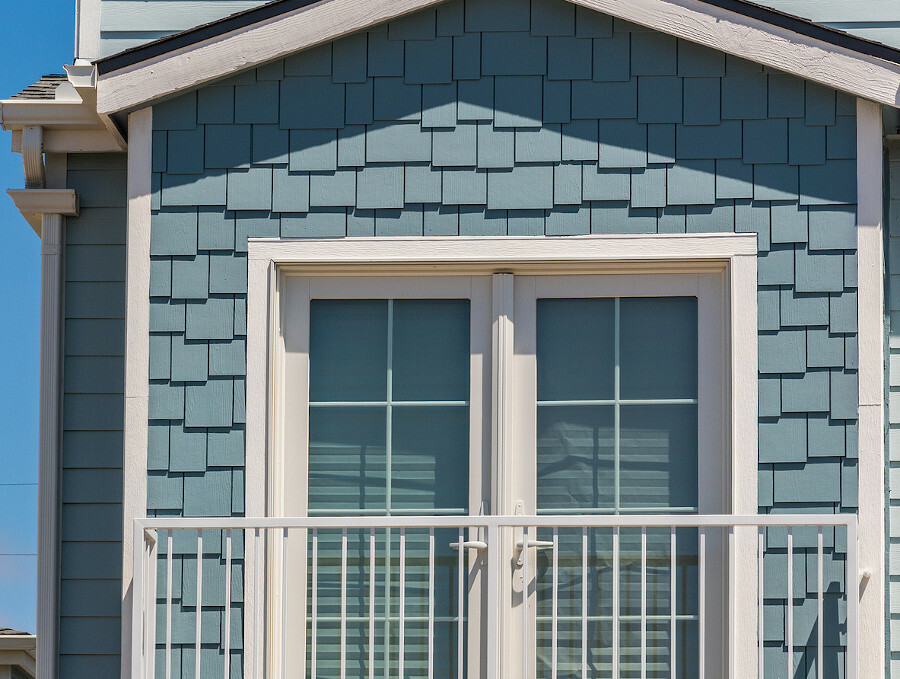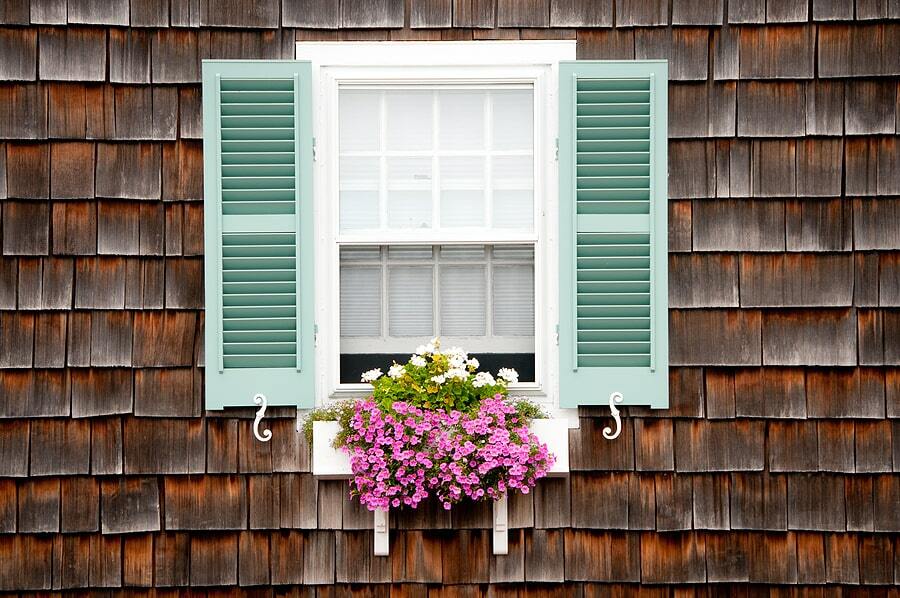
Wood siding has a warmth and rustic charm that never seems to go out of style. Depending on the type of wood, this type of siding can also be durable and environmentally friendly, with natural resistance to pests and rot.
But don’t let the word “siding” limit your options for what might work best for your home. Manufactured cedar shake such as Brava Roof Tile’s Brava Shake, for instance, offers the appearance of authentic shake siding in custom colors, without the painting, staining, pest control, cleaning, rot repair and other maintenance that real cedar requires to look sharp.
Let’s explore different types of wood siding and how manufactured cedar shake might suit your home’s needs.
Wood Siding Shingles and Panels 101

Wood siding comes in a range of softwoods and hardwoods.
Softwood Siding
Cedar shingle siding, including Eastern White and Western Red, is among the most popular of softwoods because it has a high rot resistance and takes stain well. Other softwood shingle-siding varieties include:
- Pine: highly resistant to rot and insects, and available nationwide in varieties including knotty, white, blue, and gray (similar to barn wood)
- Douglas Fir: widely available and economical like pine
- Redwood: moderately resists rot and is popular in the Western United States
- Cypress: as widespread in the Southeast as redwood is in the Western states, and of similar cost and quality
Hardwood Siding
Hardwoods are another type of natural wood siding. More expensive than softwoods because of their greater durability and rot resistance, these typically install in a lap style with a rainscreen to allow for airflow. Hardwood siding options include:
- Teak
- Brazilian Teak
- Ipe
- Accoya (radiata pine)
- Massaranduba
- Garapa
In addition to the type of wood involved, wood siding can involve wood shingles or wood shakes. What’s the difference? Wood shingles look smooth and uniform. Wood shakes are thicker than shingles and has a rougher look.
The Drawbacks of Wood Siding

Each type of shake and shingle siding or wood panel has a different aesthetic and natural beauty. However, they also have similar drawbacks, notably:
- Maintenance: Although The Washington Post notes that some homeowners love a weathered look on wood shakes and do little maintenance, others want their home’s wood siding to look clean and protected. For wood shake siding, that means staining or painting every few years, plus regular pest control.
- Risk of water damage: Although some types of wood siding are more resistant to pests and rot than others, wood shingles or wood shake tend to crack, leaving your home vulnerable to water damage and mold.
- Installation: Wood shakes require high-quality nails, preferably stainless steel, which add to the overall cost of materials and labor.
- Environmental considerations: Although wood is a natural resource, builders of new single-family homes don’t use it as much anymore, perhaps because of the cost of other siding options. U.S. Census figures show that only about 5% of new single-family homes in 2019 used wood on the exterior walls compared to brick (20%), fiber cement (21%), vinyl siding (25%), and stucco (27%).
If you love the look of wood shake siding, you might be surprised to learn that contractors can use shake roofing products to create this type of siding. That said, the wood involved also has similar drawbacks as far as rot and insect resistance, upkeep, and considerations about environmental and installation costs.
Synthetic Cedar Shake Siding: A Viable Wood Siding Alternative

At Brava Roof Tile, we manufacture a synthetic cedar shake roof product that rivals the natural beauty of real cedar but exceeds its durability. Made of sustainable composite materials such as compressed post-industrial recycled plastics, Brava Shake won’t fade, crack, rot, attract pests, or grow algae and mold, giving your home’s exterior walls the same maintenance-free protection as our roofing products.
Our synthetic cedar shake siding comes in varied thicknesses and includes the “split texture” of natural wood. It’s available in an array of colors and finishes including natural, charcoal, weathered, and aspen. It also has Class A and Class C fire ratings, as well as a Class 4 impact rating—the highest in the roofing industry—providing additional hazard protection.
Contact us today and see if Brava Shake is a good fit for your home!



